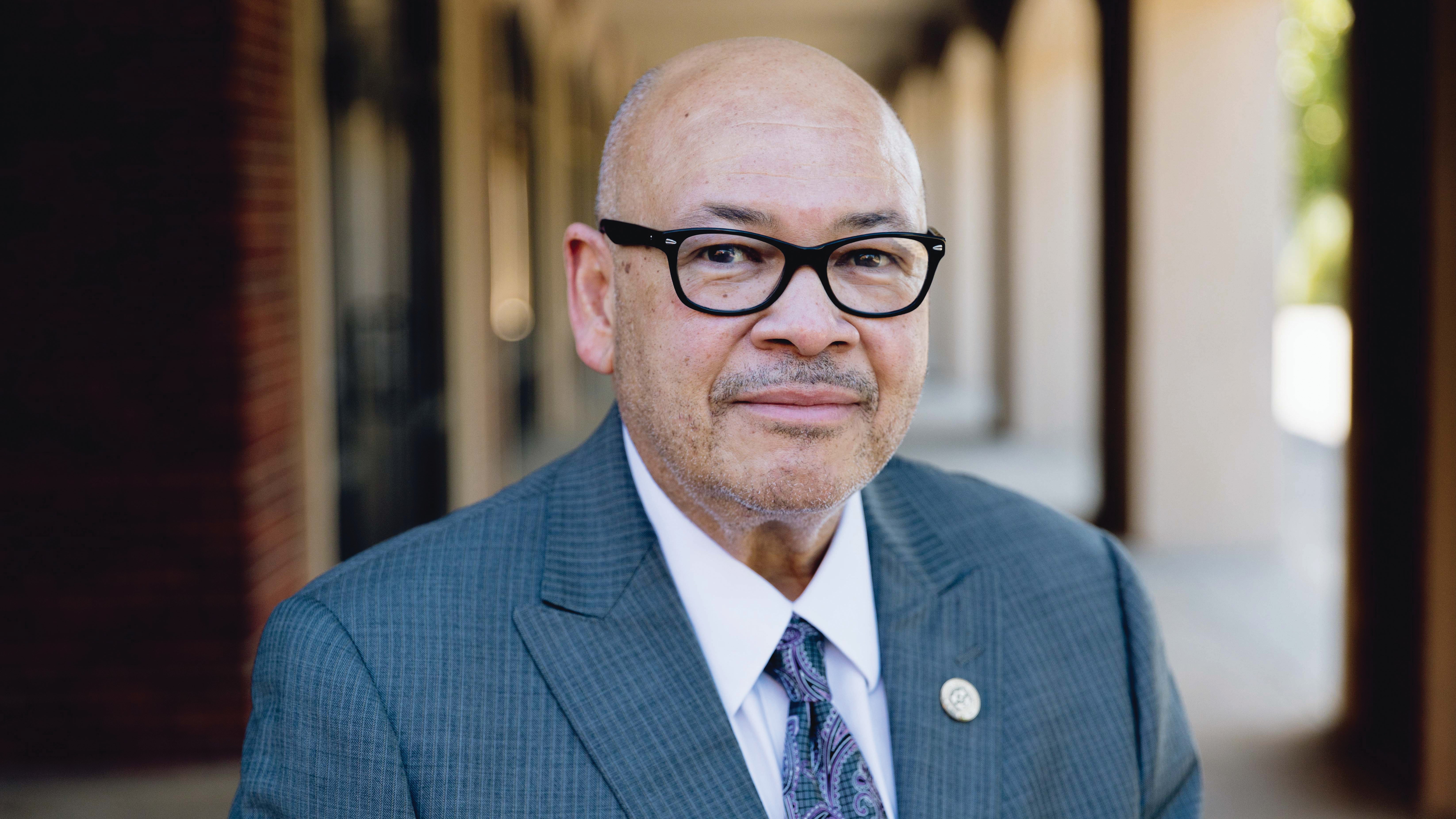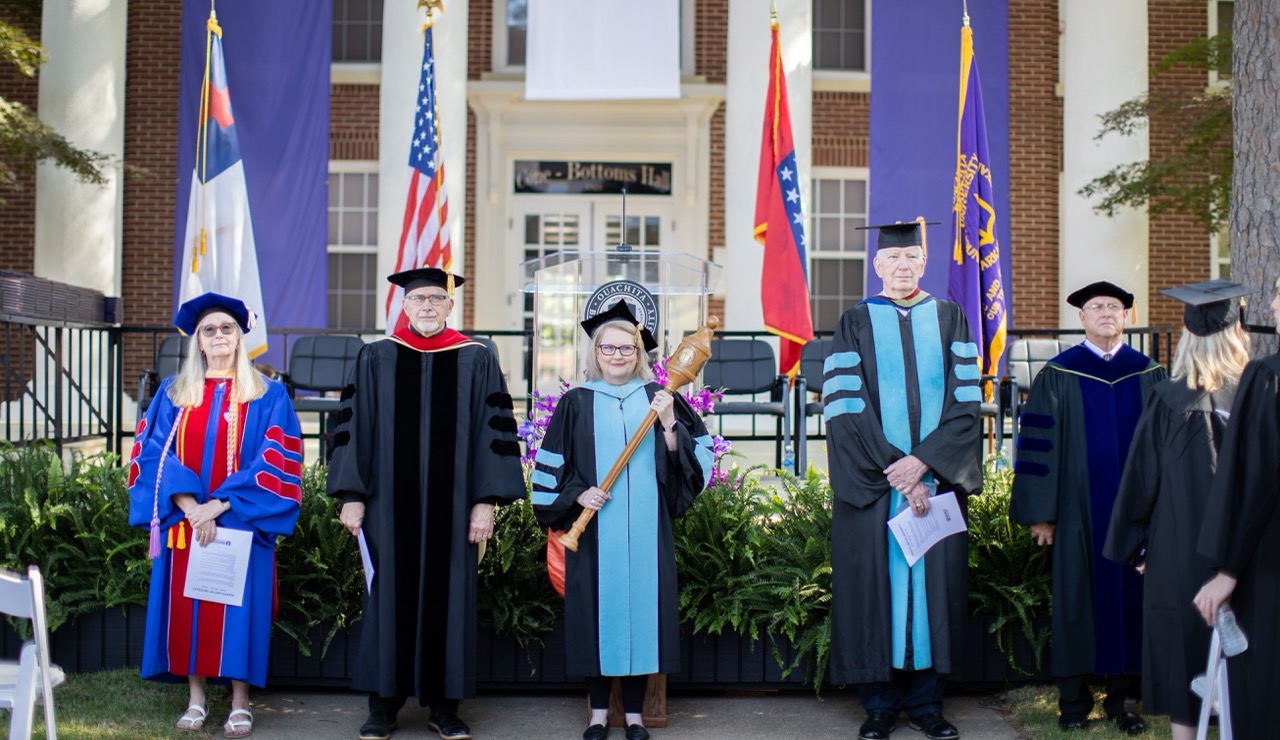Shepherd returns to Ouachita with goals for belonging
A Q&A with Dr. Lewis Shepherd
 March 11, 2021
March 11, 2021
Dr. Lewis Shepherd returned to his alma mater in August as special assistant to the president. Shepherd is a double graduate of Ouachita, having earned a bachelor’s degree in religion and a master’s degree in education. He earned his doctorate in higher education from the University of Arkansas at Little Rock. He previously served at Ouachita for 29 years in such roles as assistant to the dean of students, director of Student Support Services, director of TRiO Programs, assistant to the president for special programs and university compliance officer.
Q: Tell us how your Ouachita story began.
A: In 1974, I received my call into the ministry, and one of the first people who spent time with me about my future plans was my youth pastor, Jesse Gossett, at the Friendship Baptist Church near Magnolia, Ark. Although I was only a junior in high school, he did not want to waste any time in making sure I was prepared to enroll in Ouachita. I only visited one campus in search of my college home, and it was Ouachita.
Q: You are returning to Ouachita as special assistant to the president. What does that role entail?
A: The role of special assistant to the president covers three specific areas:
- First, providing the support and resources necessary to ensure that all faculty, staff and students of color have a sense of belonging as they participate in the Ouachita experience.
- Second, there is a focus on alumni of color to hear about their experiences and invite them to serve as mentors, encouragers, recruiters and supporters to current students.
- Third, because I pastor a local church and am active in the Arkadelphia area, I help represent the university and the president to the community.
There are two areas that report to this office: Multicultural Student Programs, the current administrative parallel to Black American Student Society (BASS), to which I belonged as a Ouachita student; and TRiO, which are federally-funded outreach and student services programs designed to identify and provide services for individuals from disadvantaged backgrounds. I previously served in several roles in TRiO.
Q: As a Ouachita alumnus and former staff member, what is it like returning to campus for this new assignment?
A: It is absolutely wonderful! During my first stint at Ouachita, which lasted 29 years, I enjoyed it tremendously. During the 11 years that I was away, with each passing day my heart would ache for Ouachita more and more. I have been overwhelmed with such welcoming comments from students, faculty and staff that I am meeting for the first time but also the “welcome back” expressions from former colleagues.
Q: In this year’s often polarizing climate for race in our country, what do you see as the path forward?
A: America has always been a nation where, regardless of the issue, it will at some point fall along racial lines. The year 2020 has been the most interesting year that I have experienced in my lifetime. We have had partisan politics in its most intense form, civil unrest that rivals the 1960s and 1970s, and a virus that has left us exposed physically, financially, mentally and socially. We live in challenging times. But, in every previous situation that was daunting and challenging to Americans, we allowed our resilient spirit to take control and help propel us to greater heights than ever before.
The guiding principles that will lead us at Ouachita focus on three primary areas: Acknowledgment that people are different because of their cultures, experiences and values; Acceptance that while people are different, they also have more in common than not; and, Appreciation for the differences, which leads to empathy.
The Apostle Paul gave us direction in dealing with human relations, and it goes across all barriers of ethnicity, color, creed, gender or socioeconomic lines: “Let this mind be in you, which was also in Christ Jesus” (Phil. 2:2).
Q: What kind of practical changes do you hope to see in the Ouachita community through your work?
A: Here are two examples. While students and alumni of color believe the words and actions directed at them are usually unconscious or unintentional, it works against a sense of belonging. I want to help other students, faculty and staff understand that not only do words hurt, but they also scar, and in far too many cases, for a lifetime. In order to be successful, students must have a sense of belonging. Additionally, I hope to see a higher percentage of students of color get internships, participate in high impact learning opportunities, graduate, get jobs and enroll in graduate programs.
Q: What work already is underway this semester that has been particularly exciting?
A: The area that has been the most intense is my interaction with alumni of color. The focus has been graduates who are from the Black, Asian and Hispanic communities, and they have responded. They’re excited that they are asked to be engaged, return to campus, serve as mentors to current students, assist in locating internships and help with faculty and staff searches. It is overwhelming to hear alums say they have not been back to campus in 25 or 30 years, but they plan to attend once COVID-19 is a thing of the past.
Lead photo by Tyler Rosenthal
You Also Might Like
Recent
Ouachita reports Spring '26 enrollment, led by 50% increase in graduate students
February 11, 2026



